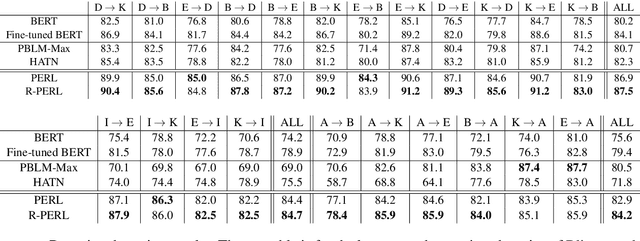PERL: Pivot-based Domain Adaptation for Pre-trained Deep Contextualized Embedding Models
Paper and Code
Jun 16, 2020



Pivot-based neural representation models have lead to significant progress in domain adaptation for NLP. However, previous works that follow this approach utilize only labeled data from the source domain and unlabeled data from the source and target domains, but neglect to incorporate massive unlabeled corpora that are not necessarily drawn from these domains. To alleviate this, we propose PERL: A representation learning model that extends contextualized word embedding models such as BERT with pivot-based fine-tuning. PERL outperforms strong baselines across 22 sentiment classification domain adaptation setups, improves in-domain model performance, yields effective reduced-size models and increases model stability.
* Accepted to TACL in June 2020
 Add to Chrome
Add to Chrome Add to Firefox
Add to Firefox Add to Edge
Add to Edge